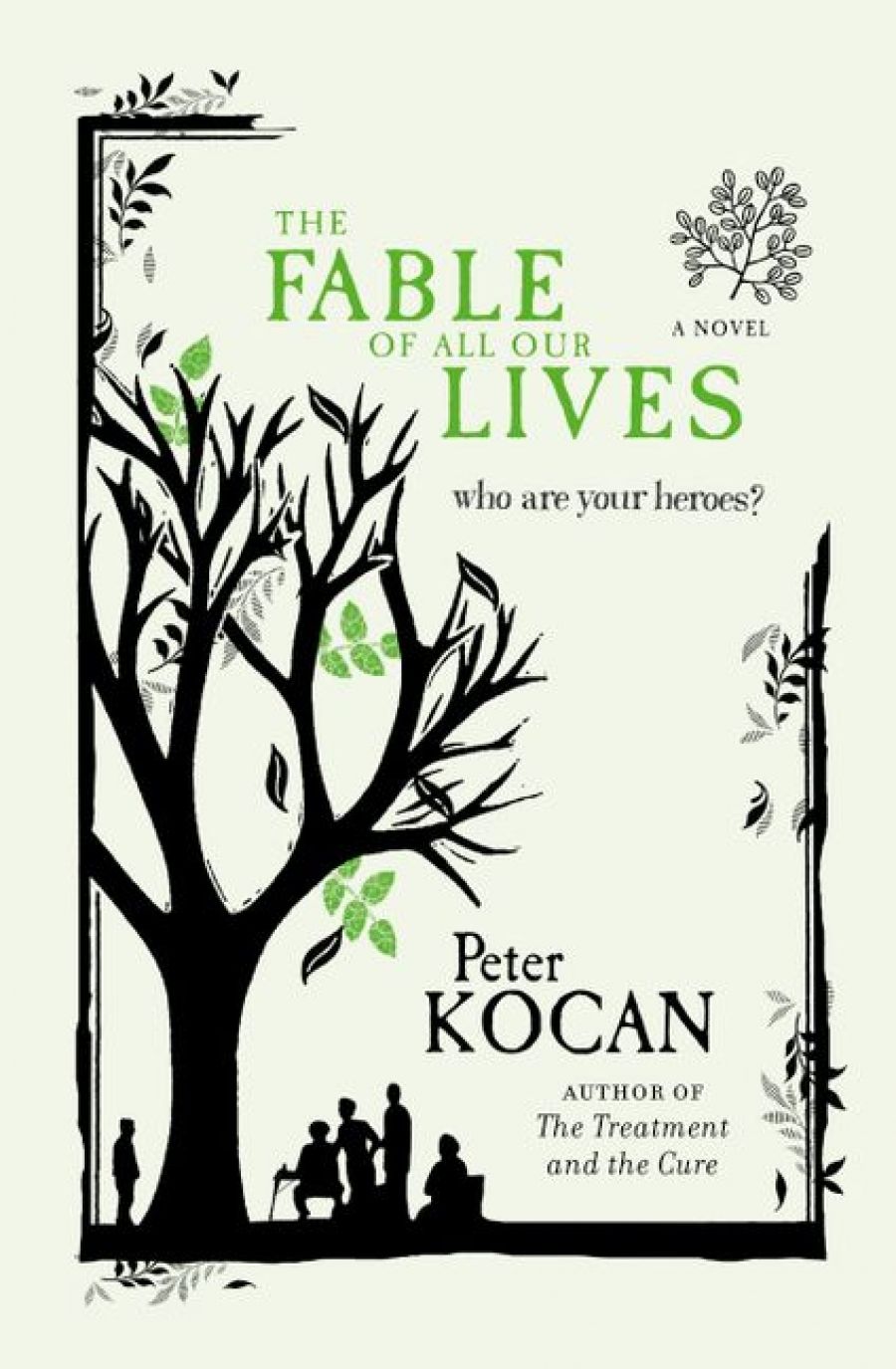
- Free Article: No
- Contents Category: Fiction
- Review Article: Yes
- Online Only: No
- Custom Highlight Text:
In or about that annus mirabilis 1968, Philip Roberts – academic, musician, poet and founder in 1970 of the poetry imprint Island Press – delivered a conference paper entitled ‘Physician Heal Thyself’, which considered eminent poets who had also been medical practitioners. (Roberts had gone from Canada to Oxford as a Rhodes Scholar to study medicine, but in a Pauline moment switched to Arts.) He spoke of William Carlos Williams, Miroslav Holub, and Boris Pasternak, among others. The climax of his paper was his consideration of Pasternak’s novel Doctor Zhivago, which he claimed had as its raison d’être nothing more or less than to serve as a vehicle for Zhivago’s poetry, which appears, if memory serves correctly, as an appendix. The tail well and truly wagged the tale.
- Book 1 Title: The Fable of All Our Lives
- Book 1 Biblio: Fourth Estate, $32.99 pb, 577 pp
- Book 1 Readings Link: booktopia.kh4ffx.net/RByg2
A Kocan poem titled ‘The Jacobite’, which appeared in Quadrant (November 1998), makes a slightly altered appearance in the novel. Tait’s friend Mike Kieslowski ‘sent an incisive little four-line poem’. Titled ‘The Social Workers’, it reads:
Hyenas will encourage a stampede
To see which ailing zebra falls behind.
They’re nature’s social workers and inclined
To feel most altruistic when they feed.
It is a damned fine poem, possibly the best in the book. It is also characteristic of Tait’s, and Mike’s, and, it seems fair to say, Kocan’s political position. All three are ‘death to’ social workers, academics, femocrats, mission statements and modernity. It comes as a surprise that Tait, who mentions many books in this novel, fails to recommend T.E. Hulme’s Speculations: Essays on Humanism and the Philosophy of Art (1924), a frontal attack on modernity.
If you wish to turn your back upon modernity, what better place to do so than in a small cottage in a small town in country New South Wales? Things change, as things will, in the name of progress, and all change, we might remember, is for the worse. Tait’s somewhat Edenic world of amateur dramatics, pantomime, the Pioneer Museum and writing poetry is overtaken by hoons, housing development, political correctness and ‘shades of the prison house’. Tait should have remembered, among his myriad quotations, ‘et in arcadia ego’.
Kocan’s novel is described as ‘a novel of poetry and politics’. In this it resembles Roberto Bolaño’s The Savage Detectives (1998); it is also similar in length. But the poetry in The Fable of All Our Lives is largely conservative, in the sense of ‘old-fashioned’, while the politics is not only conservative in an ideological sense but is, to this reader at least, deplorable. When did you last read a novel that celebrates Pauline Hanson (albeit slightly renamed) and her fictional ‘Nation First Party’? The novel’s last paragraph reads:
And then the crowd built to another huge booming wave of noise and the bellow of its hatred reverberated in the canyon of the street and rolled across the city, and it almost seemed as if it could fill the whole world. THE END.
Am I being fanciful in thinking this recalls the end of the Dunciad, ‘Art after art goes out, and all is Night’? Surely Kocan’s ‘THE END’ is not merely textual, but is meant to call up the Last Things. The ‘hatred’, by the way, is the ‘bellow’ of the anti-Hanson forces. ‘Reading,’ Bolaño said in an interview in Bomb (2002), ‘is more important than Writing.’ It is certainly more important than re-writing; than the rewriting of history. For much of its course, The Fable of All Our Lives is an admirable, gentle novel, with a perhaps excessively passive protagonist. Certainly, some of his lady friends find him that way. It is difficult not to sympathise with him when he quotes Auden: ‘a poet never enters a government building without being full of dread.’ Kocan’s celebration of country towns is part of a great Australian tradition that includes Kenneth Slessor, Peter Sculthorpe and Les Murray, who may, or whose opinions may, make thinly veiled appearances in his friend’s novel.
While the novel will doubtless be celebrated in the pages of the fictional Compact or its ‘real’ twin, Quadrant (each with two syllables ending in a plosive), it is hard not to imagine it being reviled in Hecate or some such publication. While it is, for an old unreconstructed male chauvinist pig, difficult not to smile at Kocan’s savaging femocrats and feminist academics (e.g. Sabina Sharpe aka the ‘Toxic Razorblade’) whose review of Tait’s book wins his, and Kocan’s, undying antipathy, one can’t help but feel that there are simply too many such pitted against Tait’s Holy Fool.
A novel, then, that will provoke debate and dissent – for those who can persevere for five hundred and eighty pages.


Comments powered by CComment